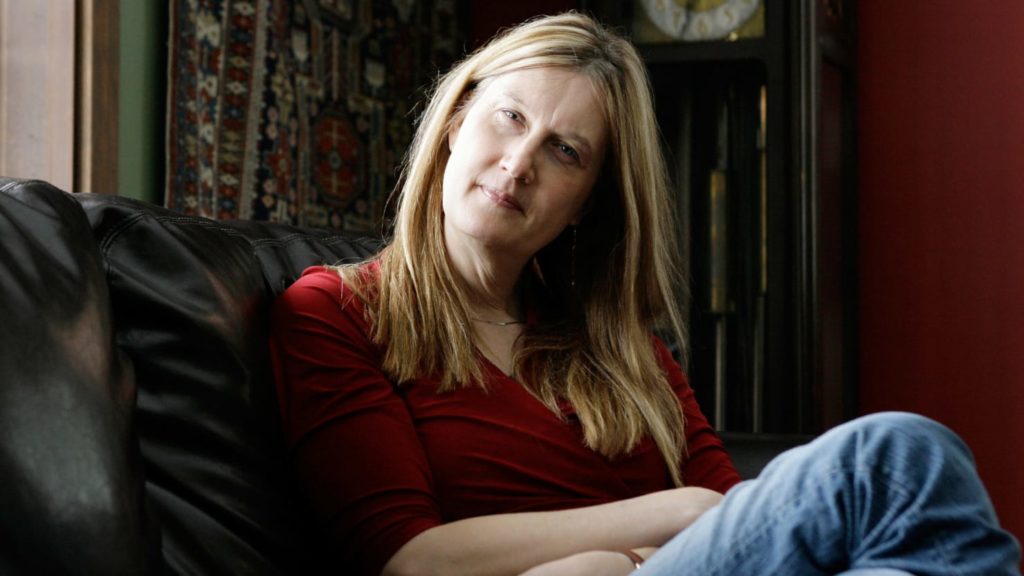Dee Collins , creative writing MA student, cited a recent reading by American transgender author and activist Jennifer Finney Boylan at UCC, during an “intervention” in a Cork coffee shop
As I was sitting in a coffee shop near UCC recently, a coterie of professionals sat at the next table; doctors or solicitors, I estimated, judging by the conversation. I was making notes on an essay but I could not help but overhear what they were saying, which involved mocking a “he/she” – their words – a patient or client; laughing about the clothes “he” wore and how “she” still looked like a man.
I was horrified by the language these well-spoken people were using to describe another human being. As they were getting up to leave, I approached one of the men in the group. I wrote on a piece of paper – “The word you are looking for is transgender; please read this book by Jennifer Finney Boylan called She’s Not There.”
Boylan is a New York Times bestselling author and political activist. She was a visiting professor in UCC in the 1990s when I was an undergraduate. At that time, she was identifying as a man. She was back in Cork in October reading from her memoir, She’s Not There: A Life in Two Genders, which charts her experience of the process of changing genders. Seeing her as “Jennifer” for the first time, was like meeting someone whose name is on the tip of your tongue while you say – “Haven’t we met before?”
Boylan was born a woman in a man’s body. Hearing her speak about not having had a voice that represented her true self was a revelation. She accompanied the reading with a commentary on the notion of gendered imagination and changing the discourse around transgender identities.
She is an elegant, eloquent woman with a jolly dash of humour on the side. She read from the first chapter of her memoir, in which she describes her mother ironing her father’s shirt, noticing the small details of the steam and the noise the iron made. It was an early recognition that she would never wear a shirt like her father’s; a man’s shirt.
Boylan also read from a piece entitled “Teachers and Students and Gender” which recalls her time as an MFA student, when she studied under the American post-modernist writer, John Barth. Barth, she explained, defined plot as “the incremental perturbation of an unstable homeostatic system and its catastrophic restoration to a complexified equilibrium”.
She sought to impress the definition on our minds before she read her piece, relating it to her own life: “Think of the relationships you have, most of them exist in a kind of uneasy equilibrium; a delicate balance except when something goes out of whack, someone dies, or someone falls in love, or they win a million dollars, or you’ve lost the sight in one eye, or your dog can’t stop sneezing. Something happens, which represents the end of everything being in balance, and now you are someplace else.
“In a story, Barth would say that’s the difference between Act 1 and Act 2, and that meridian you cross is the point of no return, inside a dramatic vehicle.
“A set of relationships involving other human beings is gradually disturbed, from a place where everything is in balance to a place where everything is out of balance. In Act 3 – the catastrophic restoration, things are put back, but put back to a new balance at the end of the story. A story is a journey from a sense of balance, to a sense of chaos, to a sense of new balance. One cannot put things back the way they were at the beginning, because then the story will be boring.”
As students of writing, we are learning techniques to give characters a voice that “hews close to the bone of the character” as one of our lecturers, the Frank O’Connor International Fellow, Marie-Helene Bertino, puts it. As writers we are looking at the world through our character’s eyes and thinking of voices that are true to those characters. The language we use to describe other human beings matters, we must not demean or stereotype people by the words we use, in life or writing. We have a duty of care, both to the characters that we create, and to our fellow human beings.
I would like to think that I tied an invisible string from Jennifer Finney Boylan to the coffee shop coterie and gave them an unanticipated ending to their morning. One of the group apologized for being “indiscreet and offensive.” I hope they took my advice and read her memoir. Alternatively, they might have mocked me while they walked to work. Either could have happened, but the worst would have been to sit there and say nothing.
Later, I thought of another Barth quote. The end of a story, he said, can be a profound re-imagining of the beginning.

